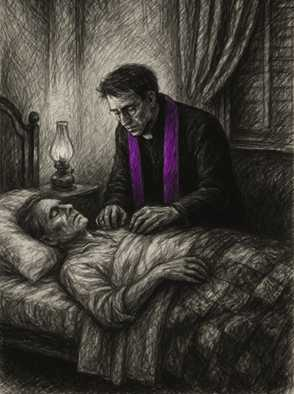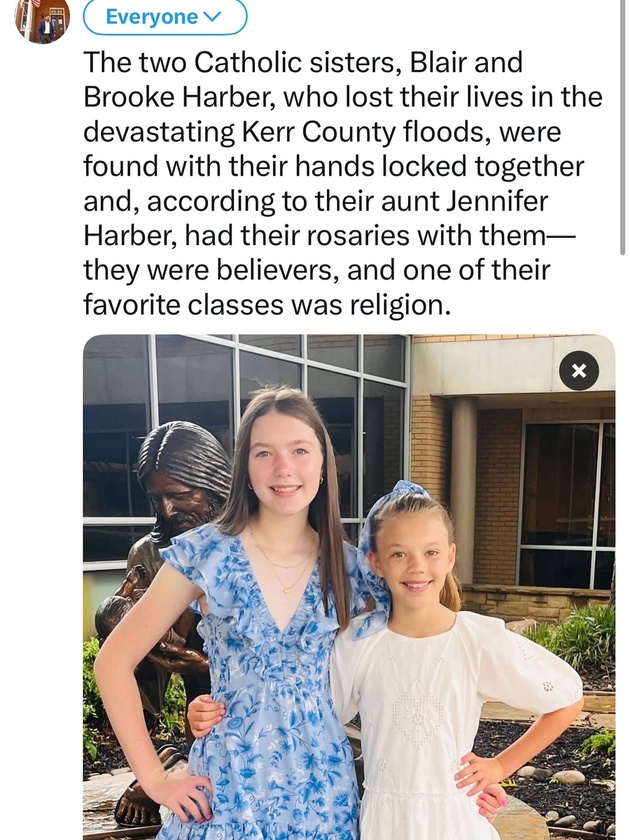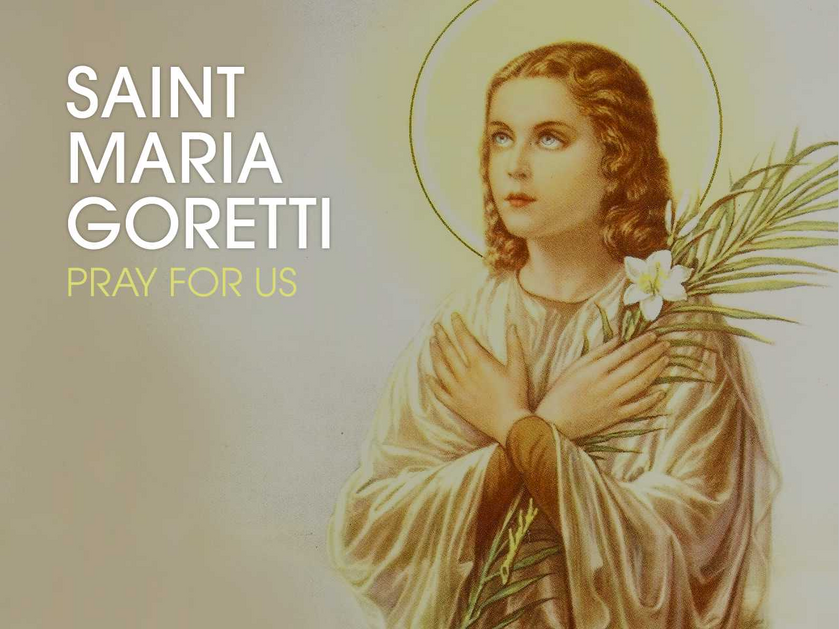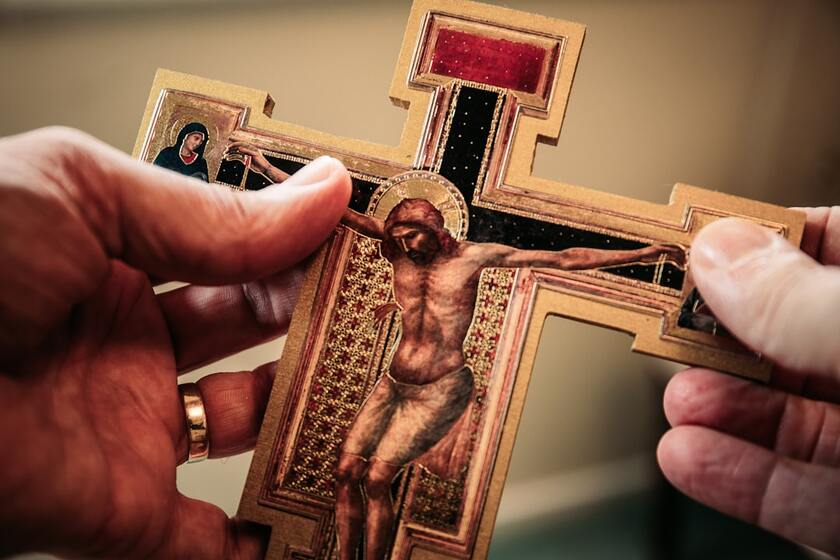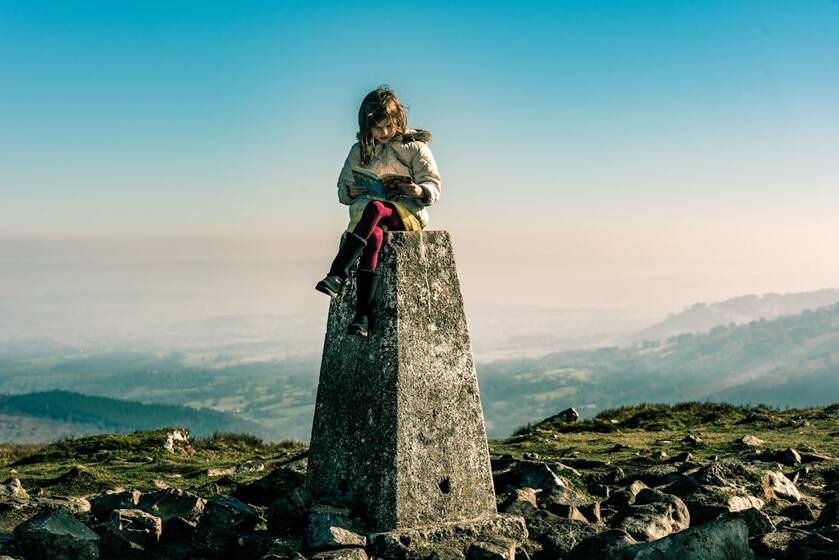Credo: A Haunting
Chapter 6: Credo
“Good morning,” said a soft, cautious voice.
I opened my eyes and sat up straight, startled. I’d been on the porch steps. Did she say morning? My thoughts scrambled.
It was a middle-aged Latina woman. Her hair was black streaked with silver. She looked at me with concern—friendly, but the kind of friendly that hides pity.
I must’ve looked a mess. I glanced around. William was gone.
“Are you Cheyenne?” she asked.
“Hi… yes, I’m Cheyenne. Ummm, did you say it’s morning?”
“Yes it is,” she said in a motherly tone. “Would you like a cup of coffee? Or some water? I knew your father.”
I almost corrected her—to say stepfather—but didn’t.
She had a soft complexion. Well-dressed. Simple, but purposeful. I saw her blue sedan parked behind my rental.
“I’ll let you wake up and get your wits about you. I’m the first house up the road. I have some of William’s things. I’ll put a pot of coffee on.”
Within thirty minutes, I was sitting at her kitchen table.
It was cozy. Knickknacks everywhere. A crucifix on the wall. A cat curled up on the windowsill. It smelled like incense—or maybe just candles and strong coffee.
“Cream and sugar?” she asked.
“Please.”
She passed me the cup, then got settled and took a sip of her own.
“I feel so guilty William died all alone,” she said. “I visited him now and then, but he’d get frustrated. He wasn’t one for pleasantries. I knew I was a nuisance.” She smiled, a smile that made her look almost childlike. “But I kept at it—bringing him things, food, checking in on him… urging him to go see a doctor. To come to Mass with me.”
I giggled. “How’d that go?”
She giggled too. “He was a stubborn thing. He’d probably argue with his own shadow. Toward the end, I could tell he was fading and moving slow. I brought him my rosary. He threw it off the porch. Cursed me out. Told me never to come back. As I was leaving, I said, ‘William, it’s never too late. All you have to do is say, Jesus, have mercy.’ He gave me the finger, then slammed the door.”
She set her cup down.
“I found him a few days later. In that back room. Dead—but clutching the rosary.”
“But what about the priest?” I asked. “He told me… I mean—I heard he had a priest friend come by and talk to him.”
Carla shook her head slowly. “No. I don’t think so. Highly unlikely. But… he went outside and got that rosary out of the yard. That’s something. There’s always hope.” She let out a soft sigh and said under her breath, “El muerto al pozo y el vivo al gozo.”
I smiled and nodded but didn’t understand a word.
We wrapped up.
I thanked her for her hospitality. She didn’t preach at me. Didn’t mention that I probably reeked of whiskey. She just met me where I was. Gave me a seat. Poured me some coffee. Then sent me along my way.
I drove off toward New Orleans. Hung the rosary on my rearview mirror—because I’d seen other people do that. I didn’t know what else to do with it.
As I drove, my thoughts started to spin.
I didn’t even remember falling asleep on the porch. Did I fall asleep on the porch? I missed Rose and the kids. For the first time, I realized—she’s probably worried about me.
“I need to call her. Let her know I’m gonna try to catch a flight home,” I said out loud.
But first… I had one last pit stop to make.
I talked to Rose and the kids the whole drive from Starks to New Orleans. Just basic rundowns. Left out the supernatural bits and anything that sounded too psychiatric. Mostly, I just listened and enjoyed their company. Rose pulled out the laptop and helped me book a flight. I’d have to stay in New Orleans again tonight and fly out in the morning.
I didn’t say much. I talked, just not about myself. We chatted about the kids, summer plans, hobbies, and little desires. It was light, like a breeze catching the edge of a curtain.
Before I knew it, a green sign loomed over the interstate: New Orleans – 15 miles. I hadn’t told Rose I planned to stop by the parish and drop off William’s Mass intention. I figured she’d be open to it—but I wasn’t ready to explain. Not yet.
After we hung up, I turned on the radio and let it scan. It landed on an oldies station—feel-good music I used to listen to with my parents as a kid. Songs William and I would hum while fishing. I caught myself drumming on the steering wheel and singing along to She’s My Cherry Pie, laughing at the memory—right as the GPS cut it off at the best part, like it always does, to announce: Arriving at St. Mary’s Assumption Church.
I planned to make it quick. The road narrowed—tight and old, clearly not built with modern cars in mind. I struggled to find parking, finally wedging myself between two cars. I grabbed the Mass intention card and stepped out, looking for the parish office.
Then someone yelled, “Hey! You can’t park there!” I glanced over my shoulder—and for a second, I swear it was that voodoo man. My heart stopped. I looked back at the car, then back at him. I’d made a mistake. It wasn’t him. Just another Black man, standing on the corner.
Still, I walked a bit farther before calling back, “I’ll only be five minutes!” The parish office had one of those old buzzers. I pressed it and said, “I’m here to drop off a Mass intention.” A voice answered, Come on in, and the door buzzed open.
An elderly man greeted me. Kind face, soft eyes, volunteer name tag. I handed him the card, and he smiled and confirmed it would be arranged for William.
“You could’ve just mailed this in,” he said, trying to be helpful.
“I was nearby,” I shrugged.
He asked eagerly if I’d like to tour the museum or visit the gift shop. I politely declined.
Then he tilted his head. “Would you like to pray in the shrine? Or slip into the back of Mass? You can catch it midstream.”
He wasn’t going to take no for an answer, so I nodded. He led me to the church doors and quietly held one open.
What I stepped into wasn’t just a sanctuary. It was something ancient. Something that pulled the imagination toward heaven.
Tall columns rose like sentinels, guarding the mystery. The ceiling bloomed with plaster vines and flowers—creation stitched into architecture. Sunlight streamed through stained glass, casting saints I didn’t recognize in warm, flickering firelight. Up front, the stone altar stood massive and hand-carved—like prayer made solid.
Everyone was sitting. I stood in the back. It was beautiful—truly. But I felt out of place. Like I was at a museum or a zoo. Watching. Observing.
The priest preached: “Jesus said to him, ‘Have you come to believe because you have seen me? Blessed are those who have not seen and have believed.’” I tried to focus, but the reverence—the stillness—kept pulling me deeper.
Then the priest stepped toward the altar and the congregation stood. He chanted, voice clear and bold:
“Credo in unum Deum.”
And the congregation joined him—their voices in unison shimmering through the smoke-filled air.
I slipped out the back again.
In the courtyard—cracked stone underfoot, jasmine blooming all around—I noticed a man sitting on a bench in a black robe. I don’t know why, but I went and sat next to him.
He didn’t look at me. Just sat there, as if he’d been waiting. Small round glasses rested on a narrow nose, giving him the look of someone both learned and lowly. Around his neck hung a large wooden crucifix—rough, unpolished. It didn’t shimmer. It didn’t need to.
His hair was thin, combed back with quiet care. His forehead gleamed in the Louisiana heat. His eyes, softened by his lenses, held a warmth that didn’t pry—just waited.
And when he finally smiled, it felt like an old friend nodding silently, already knowing the weight I carried.
“I don’t know what to make of all this,” I whispered.
He smiled. His voice was soft, but his German accent was strong. “No one was ever lost because his sins were too great, but because his trust was too small.”
“So you visited my stepdad?”
Another smile. “God’s mercy is greater than our weaknesses.”
“What do I do now? I’m so… so broken.”
He took my hand gently. “God uses our weaknesses to show His strength.”
“I think I do believe. But now what? Belief isn’t just in the head, is it?” I didn’t wait for him to answer. “Belief is in what we do.”
He nodded. His smile widened. “Spread the love of Christ by your example, not just your words.” Then he took the cross from his neck and blessed me with it.
And then—he vanished. Just like that.
I wasn’t dreaming. Wasn’t drunk. Wasn’t hallucinating. If anything, I felt more awake than I had in years.
I stood up and walked back to the car. The man who’d yelled at me earlier was still nearby.
“First fifteen minutes parkin’ free!” I shouted in my best impression of that Creole man from the other day.
I’m the only one who thought that joke was funny. I felt lighter.
As I started to drive off, I spotted a statue near the courtyard gate. It was him—the vanishing priest.
I slammed the brakes.
The inscription read: Blessed Francis Xavier Seelos—pray for us.
I reached up and touched the rosary and whispered, “For William. I remember. I believe.” I made the sign of the cross, quick and self-conscious, then sped off.
It was late the next day when I finally got home.
I parked, pulled the brake, and walked up the driveway—quiet, unsure of what to expect.
That’s when I heard it. A low, eerie scratching near the porch.
I stepped carefully toward the bushes. I stopped with caution and so did the noise. I froze.
The soft scratching returned. Slowly. And then—
A guttural hisssssssssssssssssss!
An opossum leapt out, teeth bared, mouth wide open, drooling like something out of a NatGeo predator documentary—and then, just as suddenly, collapsed.
They play dead, hiss like devils, and drool like fools—but they don’t bite. Unless, of course, you put your finger in their mouth.
I didn’t pity it—I admired it. Vulnerability was its shield, and survival its quiet defiance.
I just stepped over this echo of the past and smiled. I believe the harmless aren’t always pretty—and the pretty aren’t always harmless.
It was good to be home.



